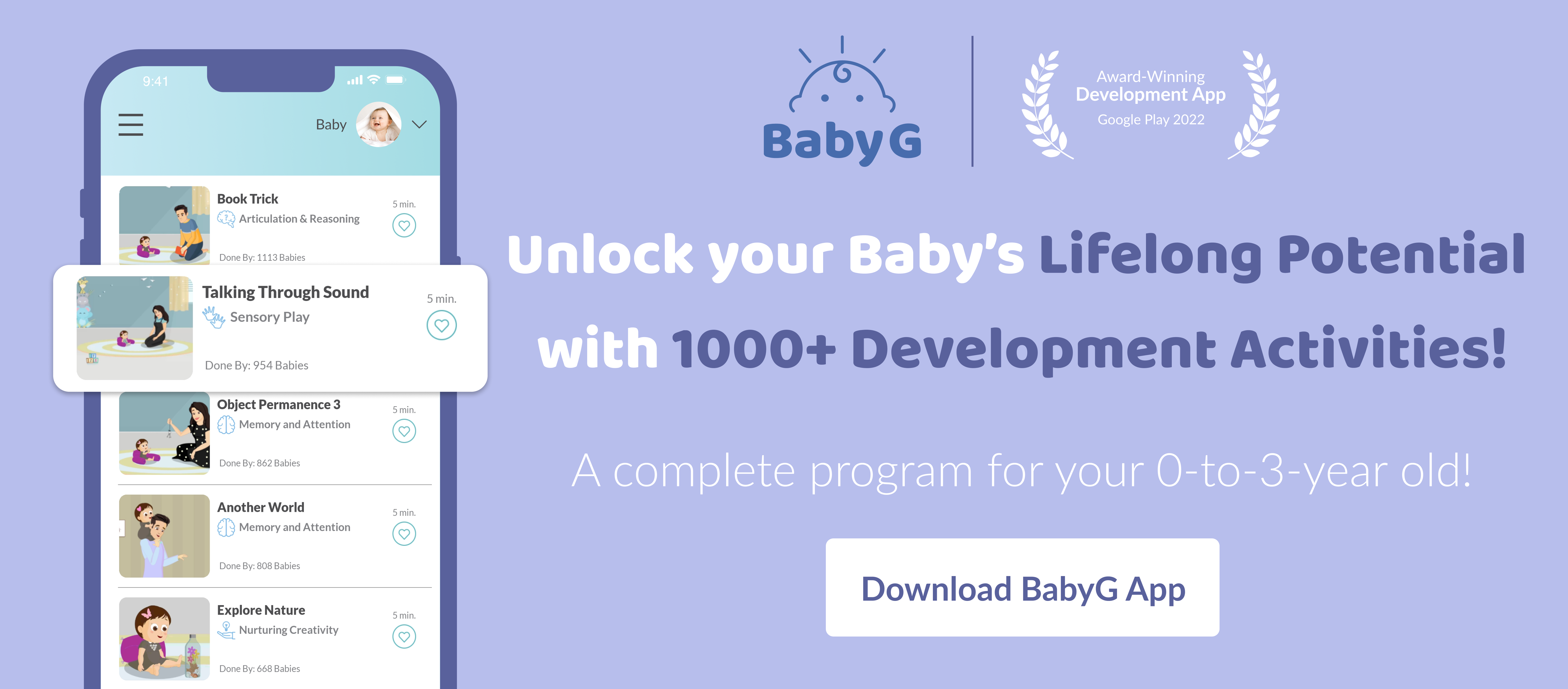
What Milestones Should My 6 Month Old Have?
Physical Development Milestones For 6 Months Baby
Physical growth in your six month old is very rapid, and you’ll notice way more mobility than ever before. They'll be trying out different ways to use their arms and legs. They are also able to roll, which means you need to be extra careful now.
1. Can support body weight on legs
Your baby would be able to support their own body weight when you made them stand on their legs by holding their underarms. It’ll only be possible for a few minutes, but even then, it indicates the completion of this milestone.Completion Rate on BabyG App: 86% Babies
Importance: This plays a crucial role in motor development as your baby will slowly learn to use their legs for things like walking and running.
2. Able to roll over
If your baby is able to roll onto their sides, go into a tummy position, and come back face up, without any support and all by themselves, then they have completed this milestone.
Completion Rate on BabyG App: 76% Babies
Importance: Being able to roll over strengthens their muscles and builds the foundation for motor development that will increase their mobility.
3. Extends body to pick objects
Your baby is fascinated by objects around them, and sometimes when they aren’t reachable, you will notice that they try to extend their body and creep their arms to get the object.Completion Rate on BabyG App: 81% Babies
Importance: This is a key development in their motor skills, which also improves hand eye coordination and encourages them to try to move their body.
4. Stable Head
Your baby is no longer wobbling their head and can support it on their own when they are sitting or held in your arms. Yay! This means the completion of this milestone.Completion Rate on BabyG App: 84% Babies
Importance: It is important for fully developed neck muscles. Only when your baby can hold their head up without wobbling can they move on to other mobility movements. They cannot learn things like crawling, walking, or running without practicing this first step.
5. Hand Coordination
At 6 months, you’ll notice that your baby has better control over their hand coordination. They are able to firmly grip objects, and sometimes some babies can also pass things from one hand to the other.Completion Rate on BabyG App: 92% Babies
Importance: You need this milestone to learn how to pick up or throw objects, which is the first step in motor development.
6. Can Sit Upright with Help
Help your baby sit up and see if they can stay in the sitting position with the support of their own hands. Some may also be able to come to this position from a lying position on their own. If they can do it, then they have achieved this milestone.Completion Rate on BabyG App: 59% Babies
Importance: Your baby will figure out body balance with this milestone, and it lays the foundation for them to start crawling.
7. Reacts Differently to Hot and Cold Water
Your baby will instinctively react when the water is too hot or cold for them. They will let you know by crying and shaking their arms and legs.Completion Rate on BabyG App: 82% Babies
Importance: This helps strengthen the sensory receptors in your baby's body and improves their understanding of temperature differences.
What if my baby does not complete a physical milestone?
Of these 7 different milestones, 4 are very crucial at this stage. These milestones are- ‘extends body to pick objects', 'stable head’, 'hand coordination’, and 'can support body weight on legs’. If your baby hasn't reached these milestones yet, you should definitely bring this to your pediatrician’s attention. Your baby cannot move forward in their motor development until they perfect these milestones. Other milestones can be achieved sooner or later.6 Months Baby Activities To Reach Physical Milestones
1. Walking on Legs
This activity can help your baby achieve the milestone ‘can support body weight on legs’, if they haven't hit it already. Hold your baby by the underarms and help them take steps with the body’s momentum by supporting their weight completely. This will help them gain an understanding of walking and a bit of spatial awareness.Frequency: Every days for a few weeks
2. Creeping
For this activity, lay your baby on their tummy and place a toy within reach in such a way that they may have to stretch just a little bit to get it. Once they learn to pick it up, increase the difficulty by keeping it farther away from them. This is how your baby can master the milestone ‘extends body to grab objects’.Frequency: Once a day for a few weeks
3. Face Down to Face Up
Lay your baby on their tummy in such a way that one half of their body is on the pillow and the other on the surface. The uneven surface should encourage them to get to face up position. This will help them achieve the ‘able to roll over’ milestone.
Frequency: Once a day for a week
Cognitive Development Milestones For 6 Months Baby
Your six month old baby will have improved their cognitive skills by now. They’ll become easily bored if you leave them alone for a while or don’t engage them in activities. They will observe objects with way more focus and will like to put things in their mouth.
1. Increased attention span
They are no longer easily distracted; instead, they look at things and even people for longer periods of time and try very hard to concentrate on every little detail about it. Like lip movements of people or the sounds of rhymes.Completion Rate on BabyG App: 92% Babies
Importance: This milestone indicates the development of focus in babies and also helps them understand the speech mechanism by reading and imitating lips.
2. Improved Spatial Awareness
Your baby is able to tell the difference between a nearby and a faraway object. If the object is a little out of reach, they’ll try creeping for it or even give cues for you to bring it to them.Completion Rate on BabyG App: 78% Babies
Importance: This milestone aids in understanding the concept of space-depth. It also improves visual learning.
3. Learns Anticipation
Anticipation is when your baby starts to understand what’s coming ahead. For example, let's say they drop a toy on their lap while playing, so they lean down from their sitting position to retrieve it from their lap. Their understanding that in order for an effect to happen, action must be taken is what this milestone is all about.Completion Rate on BabyG App: 88% Babies
Importance: It helps them understand action-effect phenomena. They will be able to control their actions once they know what the action-effect relation is.
4. Explores Objects with Interest
Your baby will no longer simply stare at the toy; instead, they will fixate on it and examine it intently from all sides and angles. They make an effort to touch the toy in all areas in order to get a full sense of it. This is a major cognitive milestone because they are doing lots of exploring on their own.Completion Rate on BabyG App: 81% Babies
Importance: It is important for cognitive development as well as fine motor skills.
5. Understands Object Permanence
When your baby recognizes that a toy is still there even after it is hidden or taken away, it is known as object permanence. Try hiding an object and asking your baby with expressions to find it. If you see them still interested and looking for the toy, then they have achieved object permanence.Completion Rate on BabyG App: 67% Babies
Importance: This lays the foundation for other cognitive activities like memory building, pretend play and even language learning.
6. Bangs Object
Babies love repetition, and you can observe this when they try to bang objects together or even repeatedly hit an object. They try to make sounds like banging, and that’s how you know that they have completed this milestone.Completion Rate on BabyG App: 55% Babies
Importance: Your baby gets an understanding of cause and effect relation with this milestone.
What if my baby does not complete a cognitive milestone?
Cognitive milestones are important for the timely development of the brain. Milestones such as ‘improved attention span’, ‘observing objects’, and ‘learning anticipation’, are crucial milestones at 6 months of age. Your baby is on their way to achieving the other milestones as well, but it's okay if they haven't completed them right away. For crucial milestones that are not yet completed, it's best if you have a word with your pediatrician, but for others, the activities that we have listed below will do the trick.6 Months Baby Activites To Reach Cognitive Milestones
1. Object Permanence
This will help your baby achieve the ‘object permanence’ milestone. For this activity, choose your baby’s favorite toy. Now name the toy and slowly repeat the name to your baby a few times. As soon as they focus on something else, name the toy again. When they turn to the object, give it to them and try repeating this activity by hiding the toy until they recollect the position of the toy.
Frequency: Once a day for a week
2. Noise and Sound Together
This activity will help them complete the milestone ‘bangs two objects’. Take a sound making toy and make sounds with it. At the same time, repeat a similar sound word like “chu chu chu” or “bang bang bang”. Sync your sound with that of the toy, and slowly, your baby will understand the play of making sound by mouth and object together.Frequency: 3 to 4 times during the week.
Communication Development Milestones For 6 Months Baby
Your little one's language skills are rapidly developing at this stage. So you need to buckle up to tap into their full potential. Your baby will engage in a lot of vocal play, including babbling, squealing, and imitating what you say. Many are found to repeat certain sounds and even string a bunch of different sounds together.
1. Able to Differentiate Between Sounds
Have you noticed that your baby responds differently to different sounds? Some sounds make them giggle, while others instantly make them wail. Oftentimes, they look at new sounds with wide eyes and curiosity.Completion Rate on BabyG App: 92% Babies
Importance: Only when they can tell apart different sounds can they imitate the same and try to talk, and that's where this milestone plays a role.
2. Expresses Sounds with Intent
Your baby has upgraded from crying with intent to making sounds with intent. Every time your baby needs a diaper change, they’ll make sounds that will have a pattern, and this is one way to know that your baby has completed this milestone.Completion Rate on BabyG App: 93% Babies
Importance: This gives them a start on learning to communicate with you verbally.
3. Responds to Rhymes They Like
By 6 months, your baby definitely has a liking for some rhymes, and their faces instantly light up when you sing to them. They will also move their arms and legs and laugh playfully, but at six months, they will verbally make sounds to these rhymes, and that’s when you know that they have hit this milestone.Completion Rate on BabyG App: 69% Babies
Importance: With this milestone, they learn to communicate their likes and dislikes with you verbally.
4. Make Two Letter Words
“Ba ba black sheep, have you any wool?” Try singing this rhyme to your baby with stress on ‘ba ba’ and see if you can get them to repeat it. Babies can also say other two letter words like ‘pa, da, ma, ga’.Completion Rate on BabyG App: 53% Babies
Importance: Your baby will slowly learn to talk by stringing more and more letters together.
What if my baby does not complete a communication milestone?
Milestones such as ‘ability to differentiate sounds’ and ‘expressing different sounds with intent’ should definitely be completed by your baby at six months. Try some of the activities that will help them practice a milestone and eventually achieve it. If this does not help, talk to your pediatrician about developmental delays and seek remedies for them.6 Months Baby Activities To Reach Communication Milestones
1. Read a book
Make it a routine to read a story or poem every night for a few minutes before your baby goes to sleep. While reading the book, stress on syllables such as ba pa ma ga, which are easier to mimic for babies. Encourage your baby whenever they try to say these words. Eventually, your baby will complete the ‘Make two letter words’ milestone with this activity.Frequency: Every day for a few weeks
2. Act out a Rhyme
Choose a simple rhyme and act it out using different actions and expressions. Try to associate an emotion with a sound, and this way your baby will associate certain words with certain actions and emotions. This will help your baby achieve the ‘responds to rhymes they like’ milestoneFrequency: 3 - 4 times a few weeks
3. Yes or No
Take a few objects which the baby can touch like to, bow, spoon etc, and a few objects that they cannot touch like scissors, knife, matchbox etc. Now, put them in front of the baby, and as they try to reach out for an object they aren't supposed to touch, say the word no and do an action like nodding the head or using fingers. Repeat the same with objects they can touch, say the word yes and do an action like smiling or clapping and this will help them understand the ‘expresses sounds with intent’ milestone.Social and Emotional Development Milestones For 6 Months Baby
Your baby has developed an understanding of emotions by now, and they can tell when you speak softly or harshly to them. Six-month social and emotional development milestones raise the bar for your baby's accomplishments.
1. Grabbing Things They Like
Most babies love anything that’s shiny, glittery, and blingy, and when they do, they’ll surely grab onto those. Sometimes you’d have noticed that they try to grab the facial features of people they meet too. This is a social and emotional development milestone.Completion Rate on BabyG App: 92% Babies
Importance: This is a form of sensory exploration, and babies are visually attracted to human faces. They also bond and try to express affection for people this way.
2. Responds Differently to Strangers
While the ability to recognize you is one of your baby's milestones at 3 months, now your baby can also differentiate strangers. Most babies either look confused or sometimes cry when they see or are handled by people they are not familiar with. You’d never guess, but this is also an important part of their social and emotional development.Completion Rate on BabyG App: 84% Babies
Importance: The significance of this is that it shows how socially conscious and gradually trust-building your baby is.
3. Prefers to Go Out
Babies love going out as it excites them and fills them with curiosity as compared to home, which does not have any novelty activities. You can clearly understand this from the kind of demands they make indoors vs. outdoors.Completion Rate on BabyG App: 84% Babies
Importance: This milestone indicates a healthy social and emotional development as they like to interact with people and things outside rather than just being cooped up at home.
4. Interacts with Own Mirror Image
Place a mirror in front of your baby and within no time will you see them expressing different kinds of emotions and sounds. They’ll touch their own faces and arms and legs and see the changes in the mirror image. If they are curious enough to interact with their own mirror image, it means they have completed this milestone.Completion Rate on BabyG App: 71% Babies
Importance: This milestone promotes emotional engagement and self awareness both of which are building blocks of social and emotional development.
5. Responds to Own Name
By the time your little munchkin reaches 6 months, they should be able to recognize their own name and give you their undivided attention when you call out to them. If they don't seem to give you attention, then try it repeatedly in a sweet and loving voice.Completion Rate on BabyG App: 79% Babies
Importance: As soon as your child learns their own name, they open themselves up to more social interactions.
6. Recognises Specific Tasks Like Medicine or Playtime
Most babies will scrunch up their noses when you utter words like medicine or doctor. On the other hand, they will be full of joy if you mention playtime or the park. This means your baby has started understanding everyday things and is processing their emotions.Completion Rate on BabyG App: 77% Babies
Importance: This means they have started to communicate their likes and try to resist any activity that they don't like, which is also a building block for social interaction.
What if my baby does not complete a social and emotional milestone?
Social and emotional milestones are slowly attained over a period of time, so if certain milestones, like ‘responding to your own name’ or ‘having specific reactions for medicine or playtime’, are not achieved on time, your shouldn’t be worried about your baby not hitting these 6 month milestones. Whereas milestones such as ‘grabbing things they like’, or ‘responding to strangers’ are crucial and if they are not achieved on time can indicate a developmental delay. Try engaging them in the activities listed below to help them attain these milestones. If the issue persists, then you should raise your concerns with your pediatrician.6 Months Baby Activities To Reach Social & Emotional Milestones
1. Mirror
With this activity, your baby will complete the ‘interacting with their own mirror image’ milestone. Keep your baby in front of a mirror and tell them that the baby they see is you and they look beautiful just like mommy or daddy. Talk to them while they look at the mirror image, and slowly they’ll grasp the idea of a mirror image.Frequency: 3 to 4 times for a month
2. Recognising Family
Show your baby photos of the entire family, like your baby’s aunt, uncle, grandpa, or anyone who is most likely to visit soon. Talk to them about their relationship with these people, and keep repeating this exercise until they recognize other family members. Soon they will be able to complete the milestone ‘responds differently to strangers’.
What Should Be My Baby’s Weight, Height and Head Circumference at 6 Months?
Here are some numbers that will help you evaluate your baby’s growth curve
Average weight for 6 month boy: 7.9kg/ 17.4 pounds/ 278 ounce
Average weight for 6 month girl: 7.3kg/ 16 pounds/ 257 ounce
Average height for 6 month boy: 67.6 cm
Average height for 6 month girl: 65.7cm
Average head circumference for 6 month boy: 38.1cm
Average head circumference for 6 month girl: 37.3cm
6 Month Old Feeding Milestones
You would undoubtedly need to adjust these to your baby's needs because no two 6 month olds are alike. You can learn a fair amount about a child's development by observing a healthy weight gain over time and the number of diaper changes, which should be around 10. Make sure you have the right formula for 6 months baby for healthy weight gain and developement. Here is a detailed schedule to help you determine whether your child is on track.
Breastfed Babies: 5-6 feedings per day, each feed of 10-20 minutes
Formula-fed Babies: 5-6 ounces (150-180 mL), 4-5 feedings per day
6 Month Old Sleep Milestones
At this age, they will have a slightly more predictable sleep routine than before. They should sleep around 14 hours a day. During the day, they should be getting 4 hours of sleep, broken up into multiple shorter naps. At night, your baby will settle down for a longer stretch of sleep, usually around 10 hours. Of course, every baby is different, so these numbers may vary slightly.
When To Worry About My 6 Month Baby’s Progress?
You don’t have to worry about developmental delay in your baby unless you see these signs
- Doesn’t show affection to parents or caregivers.
- Won’t respond to nearby sounds.
- Don't laugh.
- Has a hard time getting things into her mouth.
- Doesn’t make vowel sounds.
- Seems too floppy or too stiff.
- Can’t roll over in either direction.
- Doesn’t attempt to grab objects nearby.
How To Support My 6 Month Baby's Development?
At 6 months, your baby can comprehend way more than you think. They’ll want more attention from you and will love to explore their surroundings. So try to give more and more cuddles and love. Make sure everything around you is safe, including toys that can be put in their mouth and won't cause a choking hazard. Engage them in a variety of activities and keep track of how they are progressing.
Apart from these, keep those conversations going. Make them full of expression, and respond to them as they try to speak with sounds. One must do item on your priority list should be babyproofing the house if you haven't done that already because these little munchkins will be all over the place pretty soon. Your baby still hasn't reached the stage where they can tell you if they’re feeling good or not, so the best way to find out is to use a pee, poop, and sleep tracker, which can tell you a lot about your baby’s health. You can find everything, from trackers to activities and even expert guidance, via our 24/7 chat support on the BabyG app.
Excited to know what’s ahead on this road for your baby? Check out milestones for 7 month old baby on the BabyG.



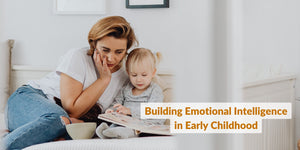
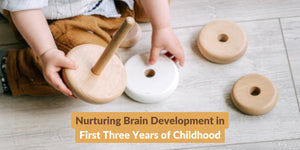



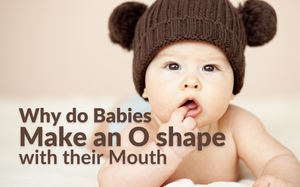
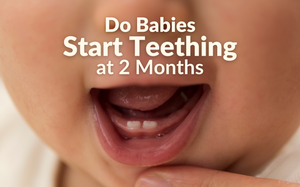
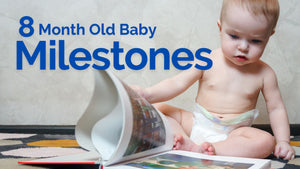
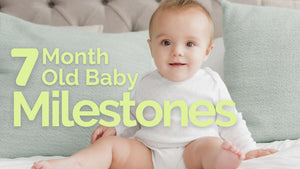

LEAVE A COMMENT